- Feedback
- Sitemap
- Skip to Main Content
- Screen Reader Access
- A+ A A -
- A A
- Control Room No. - 9205949400, 011-26768950
Zojila Tunnel: A Gateway to Ladakh’s prosperity
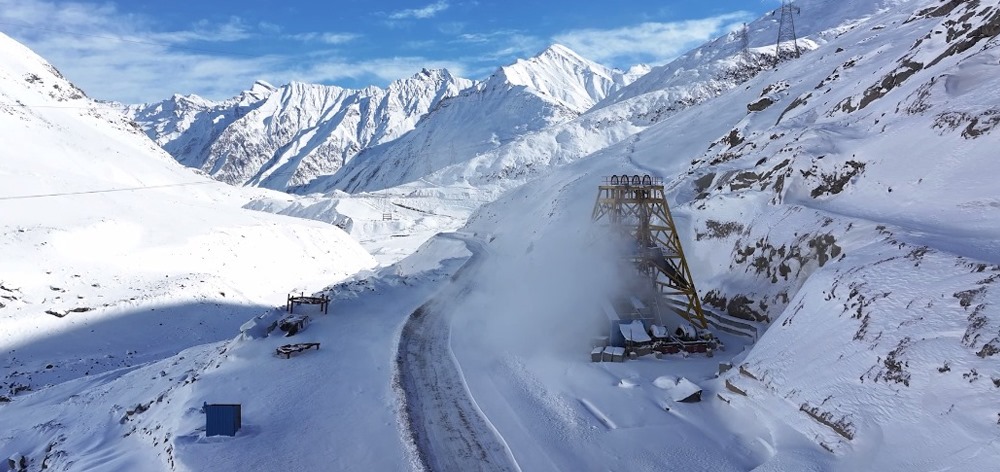
Zojila Tunnel: A Gateway to Ladakh’s prosperity
The Union Government is accelerating infrastructure development along India’s north-western border areas and has focused on improving connectivity and fostering socio-cultural integration of these remote regions with rest of the country. A key initiative in this direction is construction of 19 tunnels in the UT of Jammu & Kashmir, with two prominent projects—the recently inaugurated Sonamarg Tunnel and the under-construction Zojila Tunnel—set to enhance both civilian and strategic infrastructure. These tunnels will not only shorten travel time between remote regions and enhance connectivity, but will also provide a major boost to the nation’s defence capabilities, especially in securing border areas
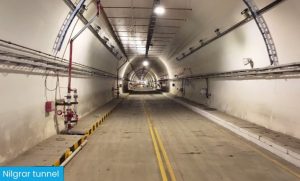 ne of the most ambitious and challenging projects, tucked away in the remote landscape of the Himalayas is the Zojila Tunnel Project. Located on NH-1, linking Srinagar and Leh, this tunnel bypasses the hazardous Zojila Pass. The tunnel is considered vital for the movement of military personnel and supplies, particularly in winter when heavy snowfall makes Zojila Pass impossible to navigate. This region is known to be notorious for avalanches and landslides, which frequently disrupt connectivity, making it India’s one of the most strategically vulnerable areas. The Zojila Tunnel aims to provide year-round access, ensuring safe and uninterrupted transport for both military and civilian traffic.
ne of the most ambitious and challenging projects, tucked away in the remote landscape of the Himalayas is the Zojila Tunnel Project. Located on NH-1, linking Srinagar and Leh, this tunnel bypasses the hazardous Zojila Pass. The tunnel is considered vital for the movement of military personnel and supplies, particularly in winter when heavy snowfall makes Zojila Pass impossible to navigate. This region is known to be notorious for avalanches and landslides, which frequently disrupt connectivity, making it India’s one of the most strategically vulnerable areas. The Zojila Tunnel aims to provide year-round access, ensuring safe and uninterrupted transport for both military and civilian traffic.
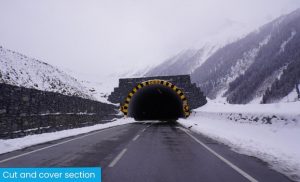
Despite the daunting task of constructing a tunnel through steep slopes, rocky surfaces and unstable glaciers, significant progress has been made during the last four years. The project includes construction of four bridges with a total combined length of 910 meters and two tunnels near Nilgrar, with a total combined length of 2.5 kms. Additionally, the project features eight cut-and-cover tunnel sections totalling 2.35 kms. The main tunnel has three vertical ventilation shafts measuring 480 metres, 385 metres and 213.5 metres, respectively.
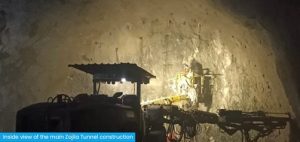
Once finished, this tunnel will provide all-weather connectivity to Ladakh, improving accessibility to the region. Currently, traversing the Zojila Pass can take up to three hours, but with the tunnel’s completion, travel time will be reduced to just 30 minutes. This significant reduction in travel time will not only enhance convenience but also result in substantial fuel savings, benefiting both travellers and the environment.
The tunnel’s socio-economic importance cannot be overstated. The local population, which has long suffered from the unpredictability of the Zojila Pass, eagerly awaits completion of this tunnel. During winter, residents often face isolation, with basic supplies and emergency services in short supply. The tunnel will mitigate these hardships by ensuring a reliable year-round route, providing easier access to essential goods and services. The tunnel is expected to stimulate economic growth in the region by boosting tourism and by offering safer and more accessible routes to the region’s paradisiacal valleys and pristine lakes. This will also enhance the logistical capacity of India’s armed forces and ensure faster mobilization of troops.
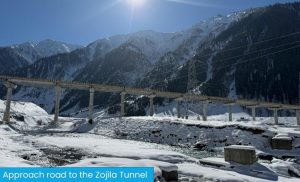
The Zojila Tunnel project is a true engineering marvel, NHIDCL is overcoming extreme weather conditions and challenging topography to bring this project to fruitful conclusion. Its completion will not only improve the lives of the local population but also enhance India’s strategic position in the region, providing vital support to national defence and contributing to the overall development of Jammu & Kashmir and Ladakh.







